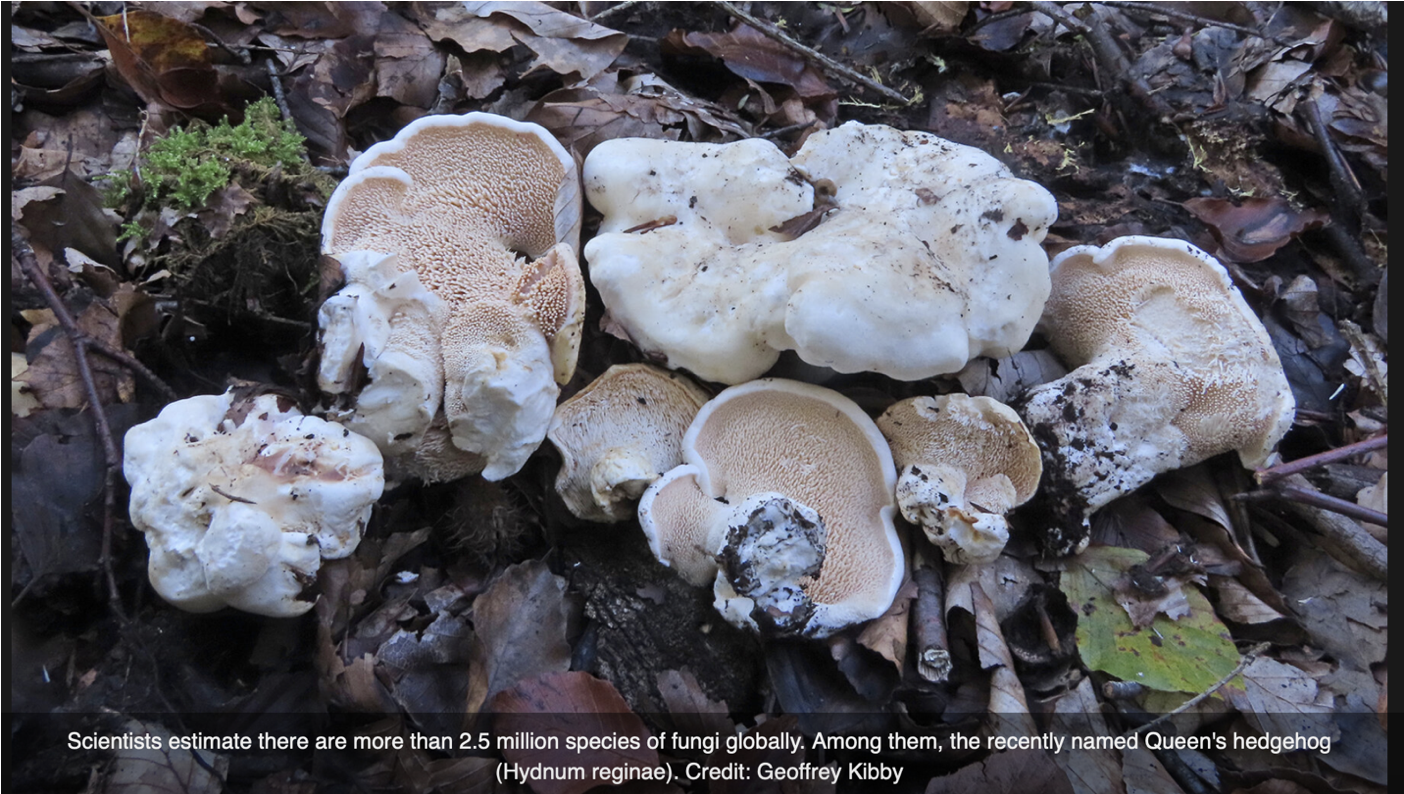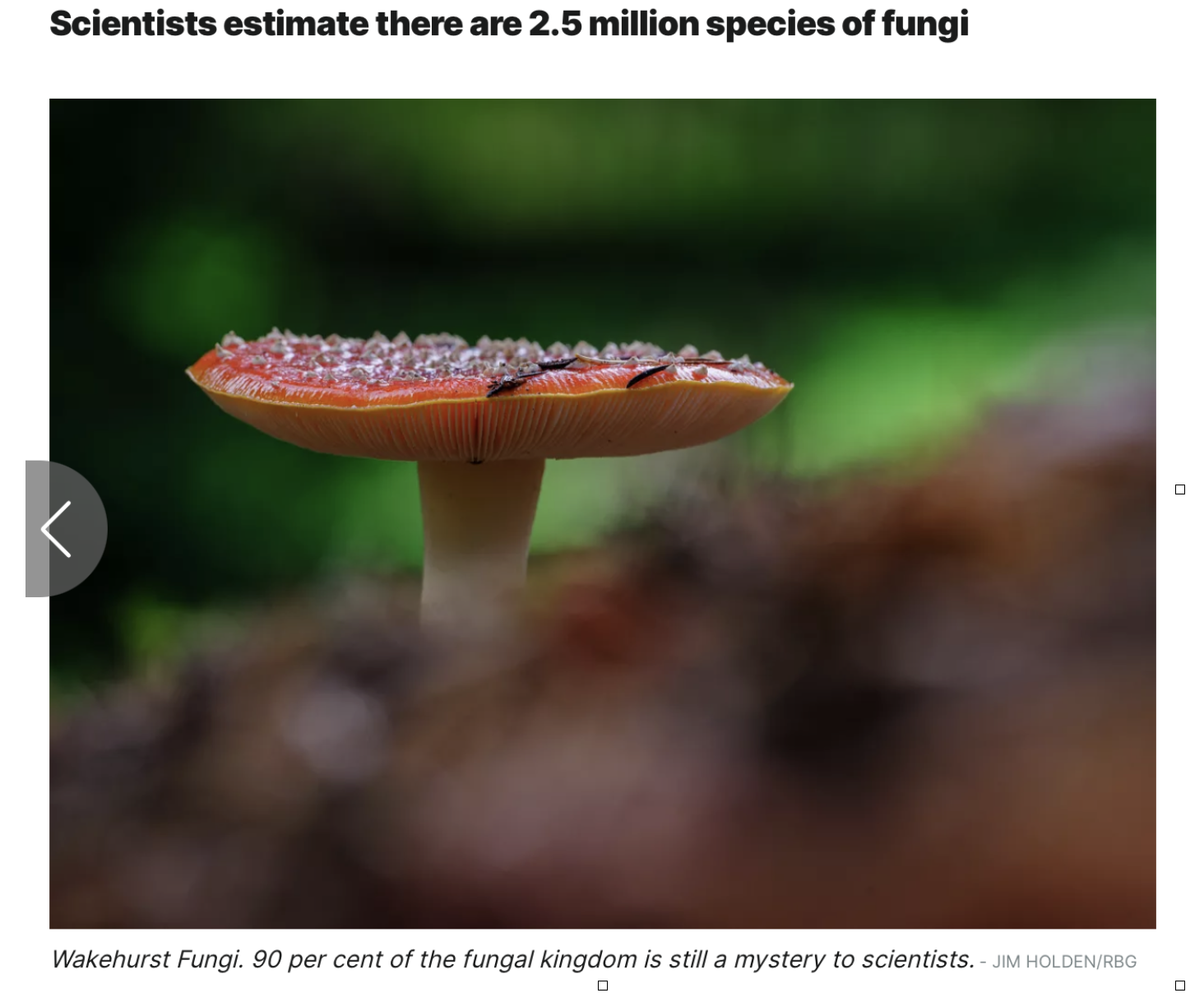October 11, 2023

(PLANT EXTINCTIONS COULD THREATEN THE CREATION OF MEDICINES)
October 11, 2023
Hello everyone,
Welcome to a future world with far less plant variety.
Dr Brown is one of the researchers who works at the Royal Botanic Gardens, Kew, who, along with others, has recently published a new report called State of the World’s Plants and Fungi.
The report has warned that we could potentially lose up to half of future medicines because of plant extinctions.
Nearly half of all plants that flower are at risk, amounting to more than 100,000 while it is believed around 77% of all those as yet undescribed by science are at risk.
Some are going extinct between the time of their discovery and when they are catalogued – which takes around 16 years on average.
The main cause of the extinctions is habitat loss, such as deforestation or the construction of dams which flood areas upstream.
We must remember that nine out of ten of our medicines come from plants, so we are potentially losing up to half of our future medicines.
Professor Alexandre Antonelli, director of science at Kew, said: “We know more about the surface of Mars than we know about fungi on this planet.”
Scientists state that at the current rate of scientific description it would take 750-1000 years to catalogue all fungal species.
Scientists have described 10,200 new fungal species and more than 8,600 species of plants since the pandemic in 2020, as lockdowns gave them more time to work through the backlog of found but unclassified samples.
Plants and fungi provide the cornerstone of all ecosystems of human life, supporting our livelihoods and providing us with food, medicine, clothing, and raw materials. So, protection of areas with important plant diversity should be of utmost significance.
With only around 10% of the world’s fungal biodiversity so far described, we could be missing out on species with game changing functions – like ones with enzymes that can break down plastic or cure diseases.
Scientists hope the research will encourage policy makers to take plants and fungi into account when choosing areas to protect as part of an international goal to protect 30% of the planet by 2030 and not just focus on animals.
From destruction of habitat to futuristic transport creation.
Imagine this – a 1,200-mile underwater train line in the deep blue sea, with a view of marine life as you travel at high speeds to your destination.
This is exactly what the UAE (United Arab Emirates) have planned. It was first discussed in 2018 as a hypothetical idea, but now it’s quickly becoming a reality, and it will cost a lot of cash.
The UAE is widely known for their technology, construction, and infrastructure in the Middle East.
With this futuristic mode of transport, exchange of goods and oil exports are feasible as well as movement of people. By joining the Indian city of Mumbai with Fujairah through ultra-speed floating trains, the projects aim to boost bilateral trade. There will be export of oil to India from Fujairah port and import of excess water from Narmada River, north of Mumbai.
The total length of the rail network will be less than 2,000km but the underwater part of the construction could pose unique challenges. Feasibility studies are still being done.
Happy mid-week.
Cheers
Jacquie
Prayers for all those affected by conflict in The Middle East and Ukraine.




